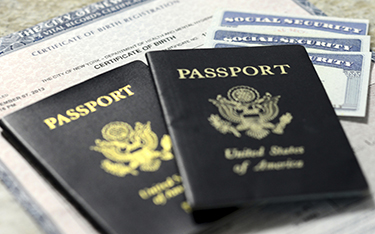On January 3, 2025, the Safeguard American Voter Eligibility (SAVE) Act was introduced in the House of Representatives. It would require voters to provide proof of citizenship when registering to vote, such as a passport or birth certificate.
The SAVE Act was created to prevent non-citizens from voting in U.S. elections. This is due to a 2016 election rumor resurfacing that stated that 10 to 27% of noncitizens vote in U.S. elections, which prompted people to believe that the election was swayed by the amount of non-citizen votes. This rumor has been debunked numerous times, yet Republicans continue to push policy based on this belief.
These numbers came from a website called Just Facts, which, according to the University of Washington’s Center for the Informed Public, has posted many articles detailing false claims of election fraud and non-citizen voting. While running for president in 2020, Donald Trump voiced these claims, which quickly spread. However, these statistics were called out by the academic community before and after he repeated the claims.
According to Ohio’s Secretary of State’s office, only 621 non-citizens might have voted in ten years. In those ten years, almost 8 million people registered to vote each year (Votebeat). If an average of 62.1 noncitizens voted in the past ten years, then approximately 0.0008% of voters per year were not citizens. 62 voters per year would barely affect a small town’s election, let alone a federal election.
One unintended effect of the act is putting real citizens’ voting rights in jeopardy. Because the name on your birth certificate is supposed to match your current name, the SAVE Act would threaten the voting rights of 69 million women who changed their name when they married, along with anyone else who changed their name in general.
According to the American Civil Liberties Union (ACLU), the act would also endanger the voting rights of naturalized citizens, citizens with low income, Native American voters, rural voters, voters of color, and first-time voters, who may not have easy access to their passport or birth certificate. People who were not born in hospitals would also have a hard time finding and obtaining a birth certificate.
Passing the bill would also end voting methods such as online voting or mail-in voting. For voters who live far from polls, voting would become almost inaccessible. Sean Morales-Doyle, director of the Voting Rights and Elections Program at the Brennan Center for Justice, said, “There are definitely people who live 10, 20, 50, 100 miles away from the closest election official: people who live in rural places, people who live on tribal lands. They’re going to have a big burden placed on their ability to get registered” (NPR).
The ACLU urged the Senate to “reject the SAVE Act and reaffirm its commitment to a fair, inclusive, and accessible democracy for all Americans.”
The summary of the act states, “The bill establishes criminal penalties for certain offenses, including registering an applicant to vote in a federal election who fails to present documentary proof of U.S. citizenship.” It does not specify what punishments come out of the charges.
In support of the SAVE Act, House Speaker Mike Johnson said, “This will be one of the most important votes that members of this chamber will ever take in their entire careers… Should Americans and Americans alone determine the outcome of American elections? Or should we allow foreigners and illegal aliens to decide who sits in the White House and in the people’s House and in the Senate?” (Votebeat). Johnson also argued that the SAVE Act would help citizens put more faith in elections.
On April 9th, 2025, the Republican-dominated House of Representatives passed the SAVE Act, 220-208. As it moves onto the Senate, Democrats have promised to block it, as the bill needs at least 60 senators to pass it onto President Trump.
Senate Minority Leader Chuck Schumer criticized the bill and the Trump Administration, calling it “the antithesis of democracy.” In a speech, Schumer said, “Donald Trump and Republicans are putting our elections in a vice grip — executive orders from the president on one end, and dangerous legislation from Congress on the other. They don’t understand the sacredness of elections and keeping them fair. The kind of legislation, the kind of executive orders which are so jaundiced, so slanted on the side of one party, are the antithesis of democracy.”
Representative Chip Roy of Texas said after the bill was passed in the House of Representatives, “Despite the ridiculous attacks and purposeful misinformation spread about the bill, I am pleased to see that the House of Representatives once again passed the SAVE Act on a bipartisan basis to ensure only U.S. citizens vote in federal elections.”
He continued, “In order to preserve this republic, we must uphold what it means to be able to vote in a U.S. election. I am grateful that my colleagues answered the call and passed the SAVE Act, as this serves as a critical first step to ensure that we maintain election integrity throughout our country. It is now up to the Senate to take up, pass, and send this important bill to President Trump’s desk.”
Schumer spoke on behalf of the Democrats of the Senate, “Let me be clear: I will not let this noxious bill, the SAVE Act, become law. Every single Democrat is united against it. They need 60 votes. The SAVE Act is dead on arrival.”
Sources:
H.R.22 – 119th Congress (2025-2026): SAVE Act
What the SAVE Act could mean for millions of voters, according to a Brennan Center expert : NPR
Noncitizen voting and the SAVE Act: The rhetoric vs. the research
House passes SAVE Act, bill requiring proof of citizenship for voting | AP News
Phil Mickelson calls out Chuck Schumer over SAVE Act criticism






















